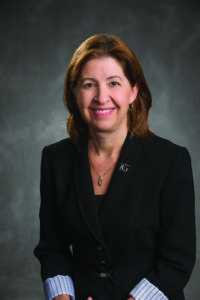
“If you can’t fly then run, if you can’t run then walk, if you can’t walk then crawl, but whatever you do you have to keep moving forward.” (Dr. Martin Luther King, Jr., Address at Spelman College, 1960.)
Today’s observance of the Rev. Dr. Martin Luther King, Jr. Day is an opportunity for our community to reflect on the life and legacy of Dr. King as well as the work that still needs to be done to achieve racial equality in the United States and around the world. This year, in celebration of MLK Day, our virtual speaker, Dr. Carolyn Roberts, will speak on the “Historical Roots of Racism in Science and Medicine.” Please join me this morning in attending the livestream webinar with Dr. Roberts from 10-11:20 a.m.
The intersection of race, racism, and public health outcomes has been a longstanding issue in the United States, as evidenced by unequal access to quality health care and health insurance, shorter lifespans, poorer outcomes in medical interventions, and higher rates of maternal morbidity and mortality for Black Americans. Today, with the COVID-19 pandemic continuing to ravage our country, racial and ethnic health disparities have been highlighted. This great challenge of our time is one that our community has discussed at several Nobel Conferences (Big Data REvolution, Cancer in the Age of Biotechnology, and Reproductive Technology: How Far Do We Go?) and through the Reading in Common Program (Weapons of Math Destruction [2021], Mom’s Cancer [2020], and The Immortal Life of Henrietta Lacks [2015]), among other lectures and events.
While you watch Dr. Roberts’ lecture today, think about this big question: How can we improve disparities that affect health equity? The Centers for Disease Control and Prevention states that “health equity is achieved when everyone has a fair and just opportunity to attain their highest level of health. We all have a role to play to address injustices and overcome obstacles to health and health care.” A liberal arts education, with its focus on interdisciplinary and collaborative problem solving, equips us to approach this and other critical issues that face our society.
As Dr. King said, we must “keep moving forward” in our individual and collective diversity, equity, and inclusion work. Look for a message from Vice President for Equity & Inclusion Dr. Doug Thompson at the beginning of second semester that will outline a series of educational opportunities and conversations for our community this spring. By participating in today’s lecture and our other campus diversity, equity, and inclusion events, each of us is fulfilling an important part of our commitment as a member of the Gustavus family as called for in the College’s mission: “to be community of persons from diverse backgrounds who respect and affirm the dignity of all people.”
Yours in community,
President Bergman